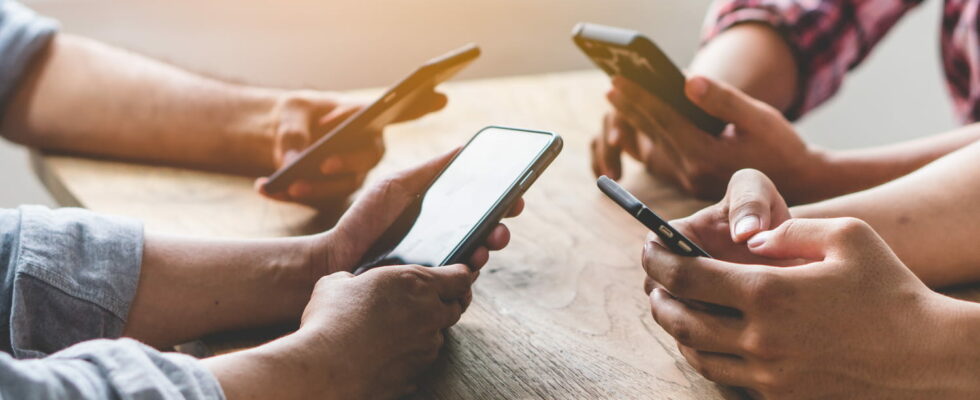Who has never tried to spend a day without their phone? Very quickly, we realize the place it occupies in our daily lives. This phenomenon has a name.
We consult it when we wake up, on public transport, at the table and before going to sleep. It accompanies us everywhere: to the toilet, to the restaurant, or to the shops. You have probably guessed it, it is indeed the mobile phone, a true companion of our daily life. For years, it has established itself as the favorite screen of the French, surpassing computers and tablets. Whether it is to send messages, browse the Internet or watch videos, we spend hours on our small devices.
Using a mobile phone stimulates our brain and promotes excitement. At the mere sight of a notification or hearing the ringtone of a call, the reflex is always the same: to check your mobile phone. This attachment that we give to our mobiles on a daily basis has become so strong that it is almost impossible to separate ourselves from them for too long. We have all already felt a sense of lack when our battery is low or as soon as we encounter connection problems.
Now this habit that we all have causes many impacts on health and the way we are. It is a cliché now, but being overexposed to screens does not have a positive effect on our body. Excessive use can affect the eye and cause or accelerate myopia. As for sleep, it is no longer a secret to anyone: blue light causes difficulty falling asleep and can cause insomnia. Significant losses of concentration at work or when carrying out a long task can also be observed.
If you want to limit these risks as much as possible, it is important to measure your usage. The most recent phones allow you to know the screen time each day and sometimes even the type of usage (social networks, time spent on each app, etc.). And time limits are starting to be known. Health insurance To expect considers that a person is said to be “addicted” to their smartphone when their screen time exceeds 3 hours of use per day. A figure that may seem very low, but which should alert us to the consequences of excessive use of mobile phones.
There are several ways you can reduce your screen time. First, start by turning off all alerts on your phone. When you’re at work, put your device on “do not disturb” to stop receiving notifications and calls. Finally, remember to turn off your smartphone when you go to sleep and keep it away from your room so that you don’t put it in front of your eyes as soon as you wake up, without even getting out of bed. Finally, try to put your phone down or turn it off when you go out with friends or are at an event. You will enjoy it even more!

